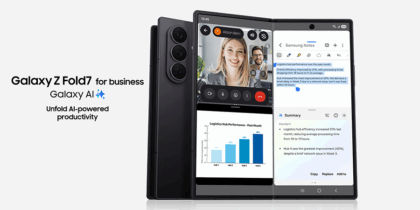Workers rely on their smartphones to remain productive outside the office. They can also be frustrated with the cost and complexity of using their mobile phones overseas. Fortunately, a new solution is emerging. Unlocked smartphones can be used with any carrier simply by switching SIM cards, unlike “locked” phones that work only with one designated carrier. This frees up enterprise mobility managers from costly contracts, helps standardize the device inventory and helps eliminate the cost and complexity of global roaming.
Rising Costs of Global Roaming
For companies that have executives who frequently travel abroad, the ability to simply pop in an international SIM card and tap into an affordable local network is generating substantial interest. It’s not difficult to see why. One example of outrageous roaming costs is the case of a New Zealand man who was fired from his job for racking up a bill of over $23,000 on his company-issued cell phone. According to a study by Amba Hotels, roaming and WiFi charges cost U.S. businesses $7.3 billion annually. To avoid the costs, many employees simply shut down when traveling abroad: An EC survey found that 28 percent of mobile phone users turn off their mobile phones; 30 percent don’t use voice services; 25 percent don’t send or receive texts; and 47 percent don’t access data.
Impact on Productivity
Business travelers who shy away from mobile phone use while traveling overseas due to high cost represent a productivity loss to the overall enterprise. Frost & Sullivan reports that employees believe smartphones boost their productivity by 34 percent, saving them nearly an hour of work time each day. With smartphone users accessing over 26 apps per month and relying on those apps to help them be effective at their jobs, they’re missing out on one of the tools that make them so efficient when using their smartphones at home.
Smartphones free people up to conduct core business tasks, even when they’re away from their desks. Work on-the-go is becoming the norm, with 76 percent of respondents in a recent FlexJobs survey reporting that they leave the office to complete their most important work tasks. All these numbers point to a business landscape where the smartphone is increasingly indispensable for the enterprise user. Workers need and expect to access data seamlessly, and that expectation isn’t lowered when walking into the international departures terminal. Enterprise mobility managers are tasked with maintaining connectivity for those who are traveling overseas, without incurring massive international roaming charges.
Benefits of Unlocked Phones
An unlocked device addresses the cost factor handily, as travelers to Europe can buy international SIM cards for about $20 in airport vending machines, restoring much-needed mobility. While cost is the primary motivator in most cases, unlocked devices offer a number of other advantages to enterprise mobility. For businesses with a multinational footprint, unlocked devices enable a new level of standardization, making it possible to get the entire workforce onto a single mobile platform, regardless of local carrier constraints. This can have a ripple effect, helping managers contain training, maintenance and repair expenses. It’s also easier to manage security on a single device set.
From a device management perspective, using unlocked phones and switching SIM cards for international travel can add some new complexities. Users need to be aware of having multiple international SIM cards and make sure they’re using the right one as they move about. Still, compared to the complexity of maintaining multiple device types, different carriers and a potential slew of roaming agreements, this requires a fairly minor administrative effort.
Business leaders are understandably frustrated by the cost and complexity inherent in international smartphone usage. With the ability to reduce cost, simplify inventory and streamline the traveler’s experience, the unlocked smartphone represents a powerful alternative to the status quo.
As technology empowers collaboration around the world, it’s important to understand how to effectively reach your mobile workforce.








